恭喜你发财 - gong xi ni fa cai (happiness and prosperity to you)
Traditional Lunar New Year greeting
Lunar New Year is nearly upon us; we have until January 29 to get ready for the Year of the Snake. Obeying tradition is the best way to ensure this Wood Snake year will be auspicious, regardless of your Chinese Zodiac animal. Avoiding taboos is equally important. So, Superprof presents what to do, and things not to do on Chinese New Year.
| 🙏Aspect | ✅Do | ❌Don't |
|---|---|---|
| Activities | Hang decorations Smash medicine pots Watch the gala Burn 'yellow' money Light firecrackers (?) | Wash your hair or get a haircut Sweep your floors or take out trash Wash your clothes Take medicine Cry |
| Gifts | give red envelopes (hongbao) alcohol tea and tea sets tobacco and sweets clothes | give cutting instruments give timepieces give 'unlucky' money Anything that comes in fours |
| Foods | Eat dumplings Noodles Fish Fruit Spring rolls | Eat porridge for breakfast |
| Conversation | Give traditional greetings Focus on the positive Give encouragement | speak unlucky words |
| Wear | Red clothing Bright colours | wear black clothes anything white |

🏮 Chinese New Year Superstitions
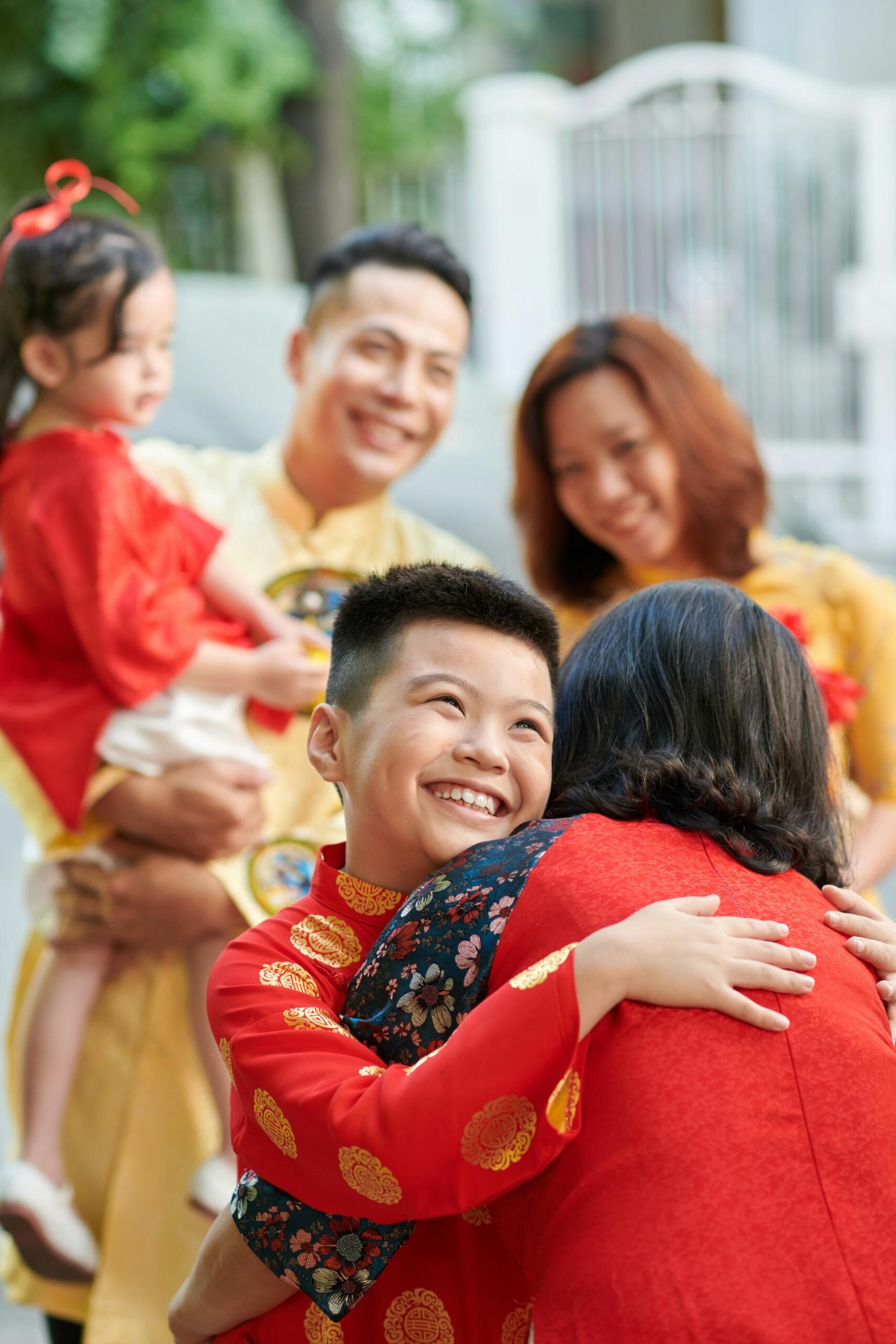
Beware that these are not strictly Chinese New Year superstitions. Many of these taboos apply year-round, and for any occasion, particularly gift-giving ones.
Still, the Lunar New Year is this culture's most important celebration. So, extra pains must be taken to avoid unlucky acts. We must also take extra measures to ensure we welcome good fortune for the coming year.
Accordingly, Chinese culture delivers a long list of beneficial actions we can undertake.
🥛 Try Not to Break Dishes
Breaking something is a bad omen in many cultures, not just Chinese culture. Especially during a big celebration. Still, during Chinese New Year, breaking a dish holds special significance. It can mean anything from incompleteness to a family breakup.
If you do happen to break something, you can avert bad luck. Simply wrap the broken dish in red paper, and say 岁岁平安 - suì suì píng ān.
The particle 'suì' can mean 'broken'(碎) or 'year'(岁). So, you're using a homophone to say you'll be safe all year, rather than broken.
✂ Don't Use Cutting Instruments
Superstitions about scissors and knives cutting life short abound. In Chinese culture, during the Lunar New Year, they are especially meaningful.
The open-close-open action of scissor blades mimics a mouth delivering cutting words. So, the theory goes that using scissors on New Year's Day invites a year's worth of arguments and insults.
Likewise with using any type of blade. For one, you risk an accident, which would set the tone for the year ahead. Also, making a cut symbolises cutting one's chances at prosperity.
🧵 Abstain from Needlework
Sewing is almost a lost art in our society but, in some parts of China, it's an important activity. Still, no matter how deft you are with your needle, it's best to leave it on the day of the Chinese New Year.
This taboo has its roots in the clothing industry.
Long ago, women worked in collectives, hand-sewing for hours each day.
They got five days off for New Year celebrations.
Leaving your sewing kit idle for five days after New Year honours those workers. It also means the year ahead won't be full of hard work.
If you happen to lose a button or burst a seam during that time, put your wealth on display. Changing your clothes mid-celebration shows you're already quite prosperous.

😶 Avoid Unlucky Words
If you're in China, you might notice some doorways have yellow and black decorations, rather than the traditional red and gold. That signals that a family member passed during the previous year.
You might offer your condolences, but do so carefully.
They're all pronounced 'si' in Mandarin Chinese, differentiated only by their tones (司,思,丝, and 四, respectively).
The particle si is very common in Mandarin. Unfortunately, 'death'(死) is also a 'si' word. Thus, you must avoid speaking the 'si' particle at all costs.
Speaking 'unlucky' words like 'death' and 'loss', or anything related to poverty and illness, is taboo. Instead, allude to what you want to say in a roundabout way. "I'm sorry your auntie is gone", for instance.
💸 Lending and Borrowing
Neither a borrower nor lender be.
Shakespeare, Hamlet
Traditional Chinese culture dictates that all debts should be paid before the new year. That way, all past misfortunes that caused borrowing are resolved.
No matter how needy you or a borrower might be, heed Shakespeare's advice during the Lunar New Year. Misfortune will follow debt collectors and borrowers alike, throughout the year.
These are just a few general concepts that make Chinese New Year remarkable. Others are more targeted.
🧹 Chinese New Year Taboos About Cleanliness
Chinese New Year taboos about cleaning the house and oneself might seem extreme to cultural outsiders. To cultural insiders, they appear contradictory.
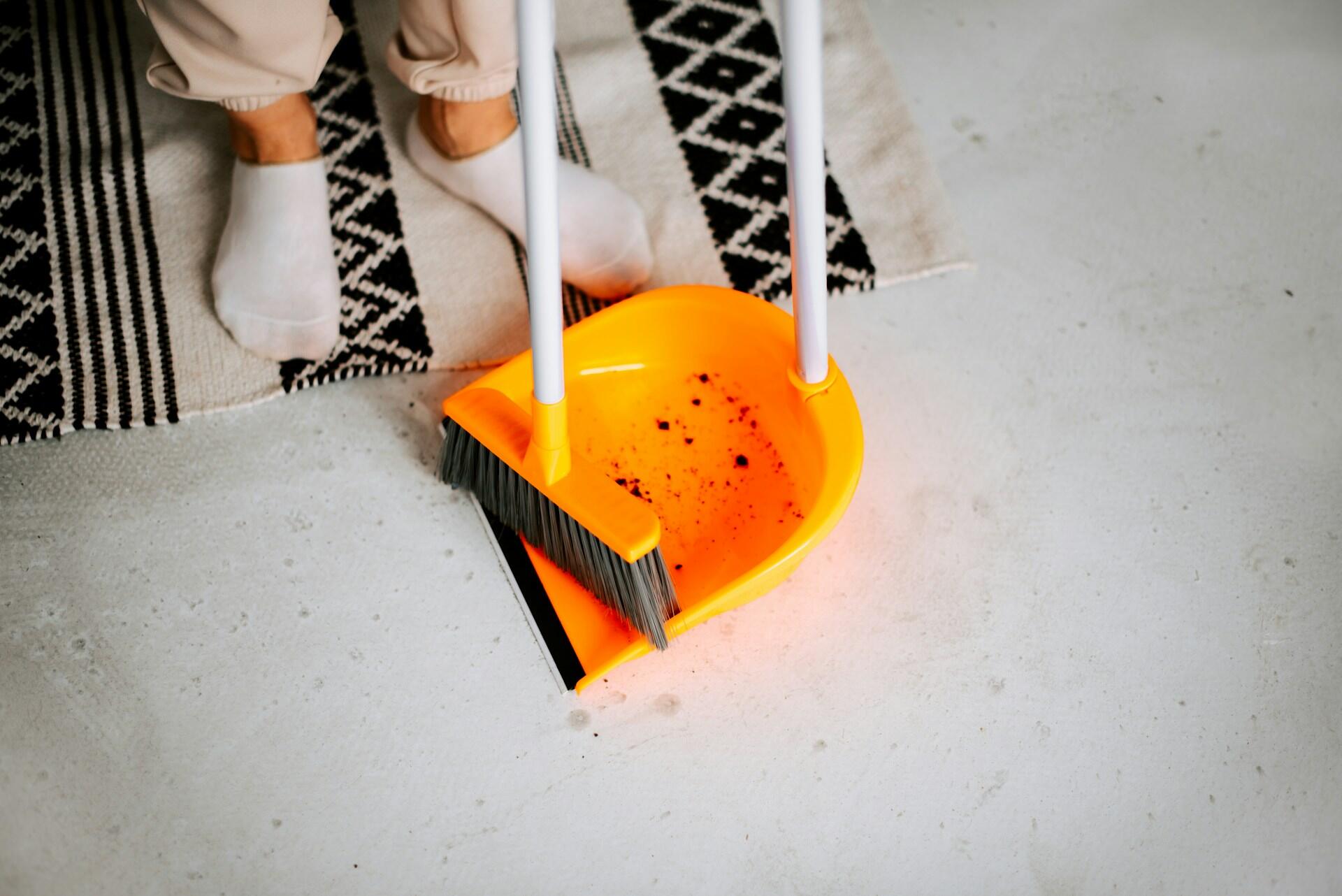
After all, keeping one's house and body clean is a hallmark of being Chinese. Still, one shouldn't do these things on New Year's Day.
You mustn't
- Sweep the floor
- Take out the trash
- Wash clothes
Instead, do this
- Pick up or kick away large clumps
- Leave the full bin bag by the bin
- Wait 2 days to wash
Washing clothes is a double bad-luck whammy. Water is a wealth symbol, so pouring dirty water out means you're tossing your fortune.
Also, the Spring Festival coincides with the water god's birthday. This is a little-known fact about Chinese New Year. Washing clothes on this god's birthday is disrespectful.
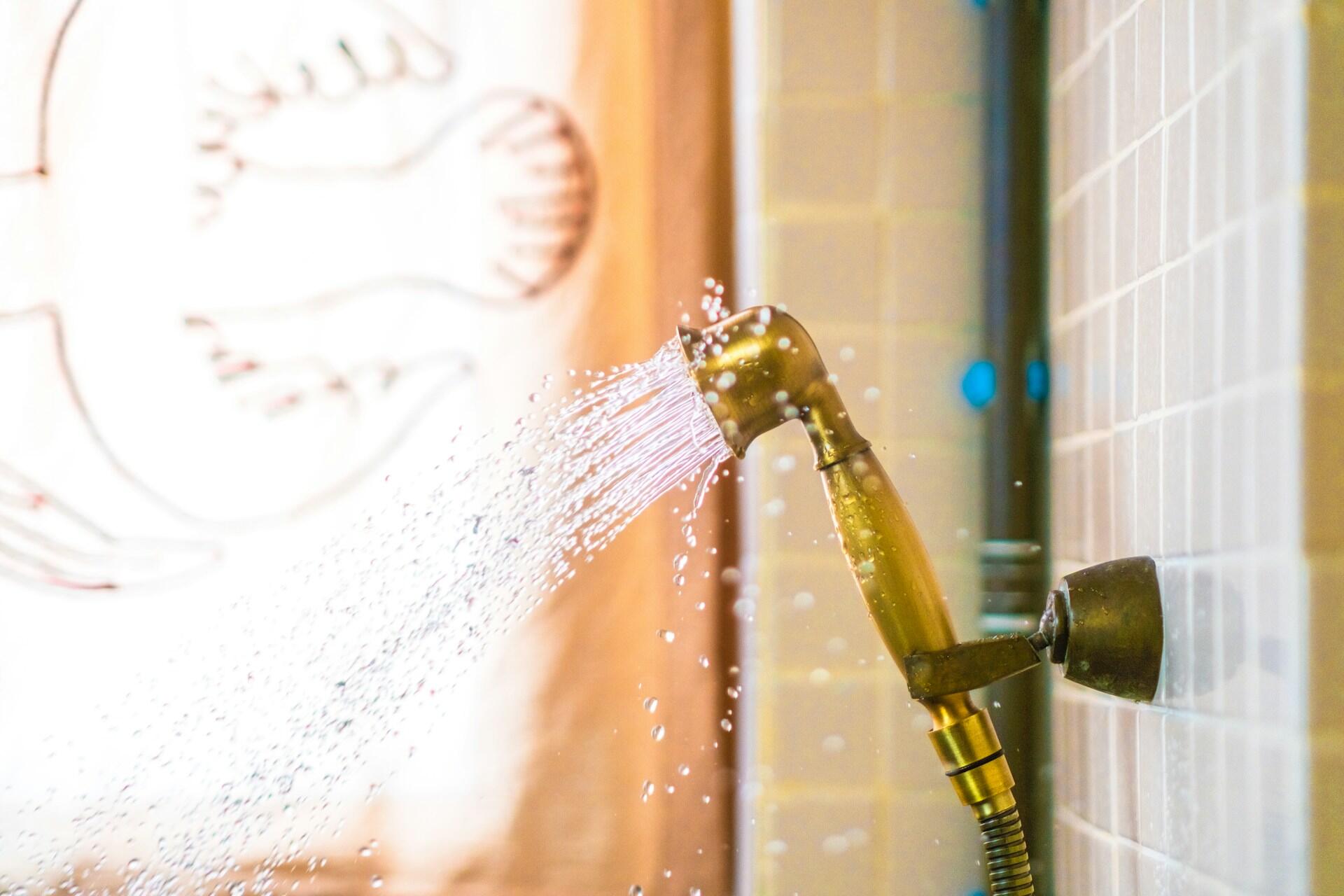
🚿 Can You Shower on New Year's Day?
Yes, but do not wash your hair. As is typical in Chinese culture, the reason is elegant and logical.
The third character in this greeting, fa, features in the Chinese word for hair (头发 - tóu fa). It also has the same tone.
If you wash your hair, superstition says you are also washing away your prosperity. The question: "Can you wash your hair on New Year's Day?" must meet a resounding 'No!'.
Nobody will panic if you wash your hair on the second day. In fact, the trend is now to visit the salon for a wash and cut just before the Spring Festival. That way, one greets the new year with 'new prosperity', while avoiding a wash the day of.
If you've ever wondered: "Can you shower on New Year's Day?", or whether doing the dishes is frowned upon, the 'laws' are clear. Now, you know them, and their reasons.

🧧 Gift-giving and Chinese Red Envelope Etiquette
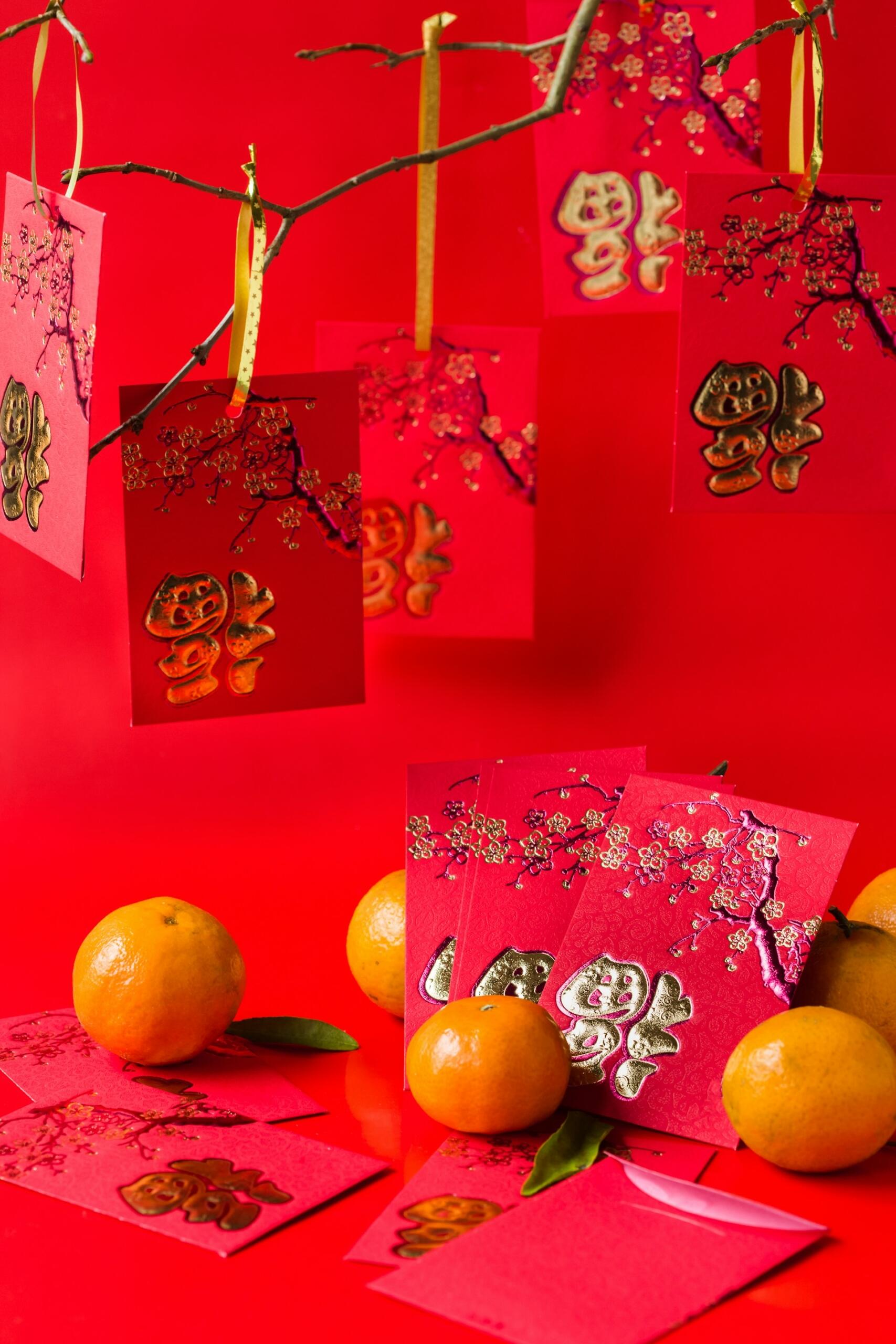
The Chinese New Year red envelope - hongbao (红包) is one of the most keenly anticipated New Year gifts. It's exactly what its name describes: a red envelope, usually adorned with Chinese writing and symbols in gold foil, symbolizing prosperity and good fortune. The red colour itself represents good luck and is believed to ward off evil spirits.
Typically, this gift is reserved for children, though parents will often give their adult children a hongbao as a gesture of continued blessing and care.
The tradition also extends to married couples giving hongbao to their unmarried friends and relatives, and employers presenting them to employees as year-end bonuses.
The trick to receiving it respectfully is with both hands, while giving a slight bow and expressing gratitude. While protesting vehemently that mum and dad shouldn't have, this modest refusal is actually part of the cultural etiquette - a dance of giving and receiving that demonstrates humility and respect for one's elders. The amount inside should never be checked in front of the giver, as this would be considered extremely rude.
Any amount, as long as it's a lucky number.
Any number containing four or five is out.
Six and eight are widely considered lucky numbers. A hongbao containing 88 yuan hits all the right notes, as 8 is the most fortunate number of all. A pair of eights doubles the luck.
Gifts to Give, and Ones to Avoid
The lucky number philosophy extends to gifting anything that comes in multiples of four. Forty - or 400 yuan, in a hongbao, is a grave taboo. Tea sets with four cups, cake boxes with four cakes... All of these are definite no-nos.
Otherwise, this chart presents a list of suitable and unsuitable gifts.
| 🎁Gift | 💔Why it's unlucky | 😇Give this, instead |
|---|---|---|
| Sharp objects: pocket knives, scissors, any blade instrument | Symbolises cutting off the relationship. | Tea set, dishes |
| Timepieces: watches, clocks | Symbolises time running away/running out. Sounds exactly like 'attending a funeral' (song zhong 送终) | Clothes, books |
| Shoes | Chinese word for shoes (xie 鞋) is a homophone for evil (xie邪) | Scarves, clothes |
| Flower bouquets/cut flowers Candles, scented or not | Suitable for funerals, not celebrations! | Plants, fruit |
| Dolls | Attract/harbour evil spirits | Sweets, books |
🥟 Chinese New Year Traditions Regarding Food
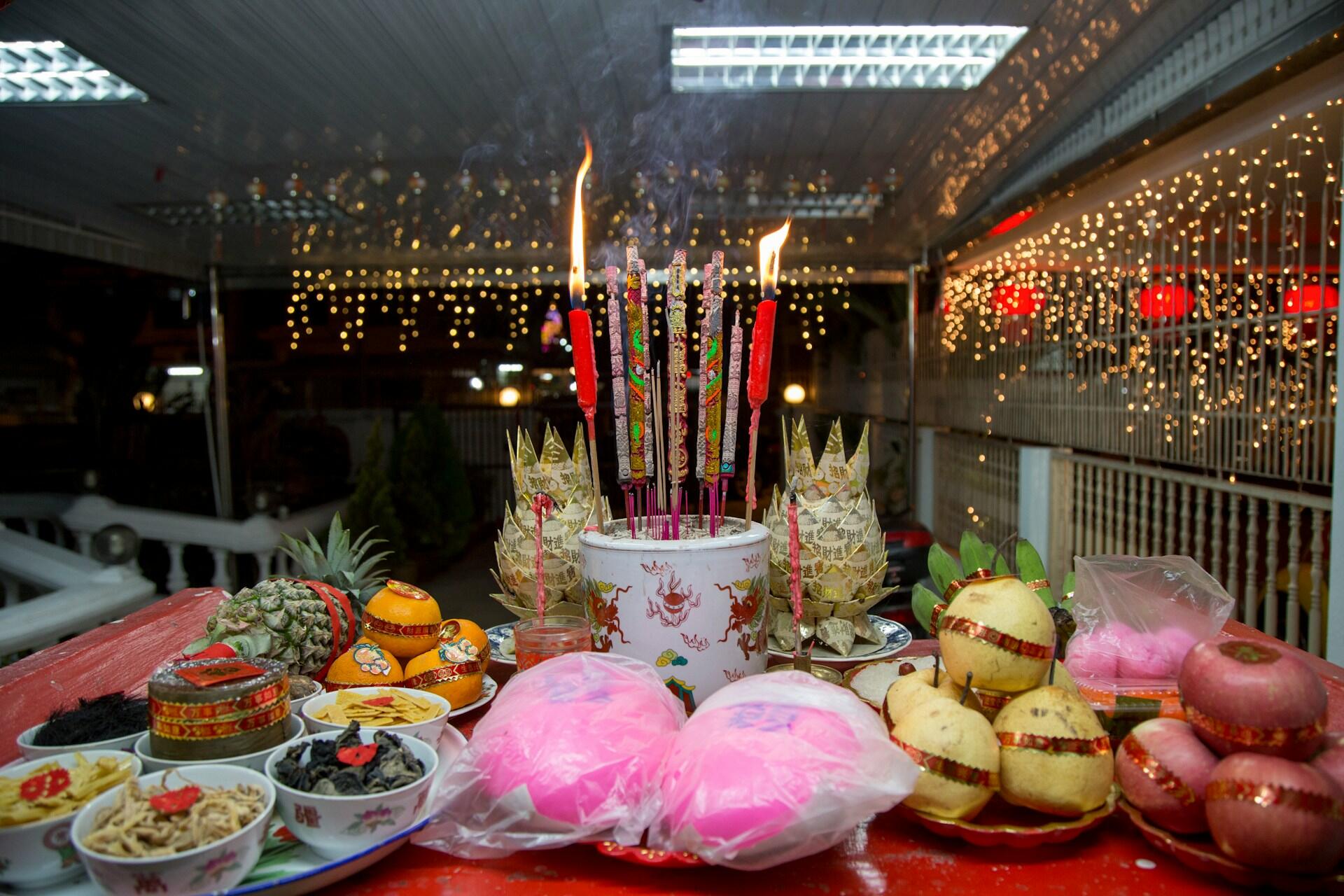
The only hard-and-fast rule about New Year eating is to avoid 'poor' foods. Porridge must not be a breakfast meal. It is cheap to make, something destitute people might fill their bellies with.
Clearly, that's not the message to send out when asking fortune to smile on you. These are the foods and dishes to load your Chinese New Year table with:
- dumplings (jiǎo zi - 饺子) for wealth
- fish (yú - 鱼) for prosperity
- chicken (jī - 鸡) for luck
- spring rolls (chūn juǎn - 春卷) for wealth
- sweet rice balls (tāng yuán - 汤圆) for togetherness
- glutinous rice cake (nián gāo - 年糕) for higher pay or position
- noodles (cháng shòu miàn - 长寿面) for longevity
- steamed pork belly (hóng shāo ròu - 红烧肉) for prosperity
Besides these dishes, fruits and vegetables feature prominently. Leafy greens - lettuce and bok choy, represent fortunate aspects. Also, their Chinese names are near-homophones for wealth and fortune.
The pomelo (yòu - 柚), a mild citrus fruit, sounds like 'to have' (yǒu - 有) - save for the tone. Also, it's a homophone for 'again' (yòu - 又). So, eating this treat symbolises having (wealth, health, and happiness) again. That sentiment is the essence of Chinese New Year.
🎇 How do People Celebrate Chinese New Year?
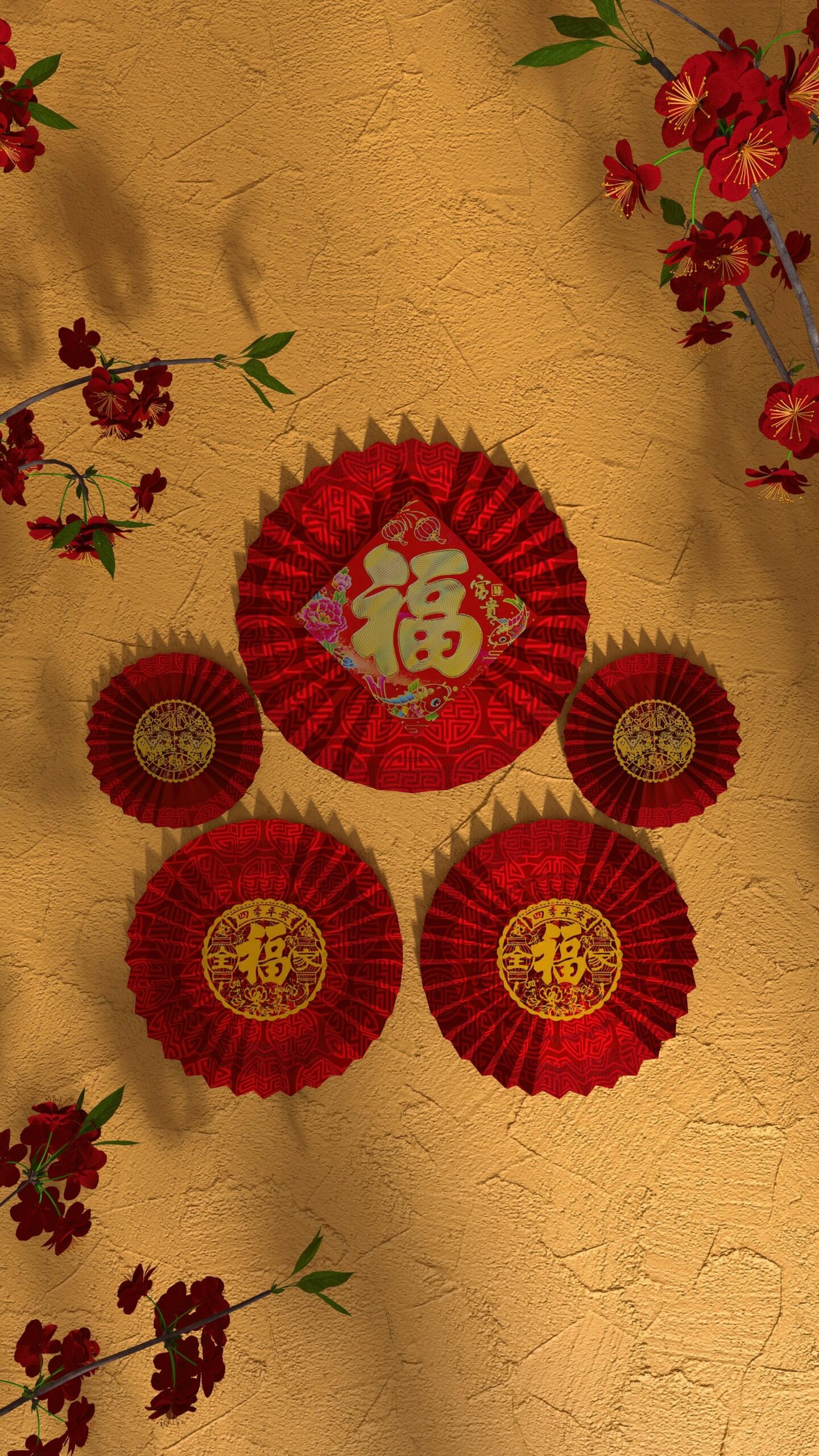
Whatever you do, don't fail to greet everyone you interact with during the Spring Festival - it's considered essential for maintaining harmony and showing respect in Chinese culture, even with casual acquaintances.
You should save the most meaningful phrases for people you're close to, or heartfelt wishes for their family's prosperity and health.
But, be sure to deliver a cheerful New Year greeting to shopkeepers and neighbors, at the very least - a simple "新年快乐" (xīn nián kuài lè) or "恭喜恭喜" (gōng xǐ gōng xǐ) shows thoughtfulness and helps strengthen community bonds.
The song in the clip, and its greeting (恭喜发财 gōng xǐ fā cái), are standard during the Lunar New Year. Of course, that's not the only way to express your Spring Festival best wishes - you can also say "万事如意" (wàn shì rú yì) for "may all things go as you wish," or "年年有余" (nián nián yǒu yú) meaning "may you have abundance year after year."
Happy New Year
- xīn nián kuài lè
- 新年快乐
- xīn nián hǎo
- 新年好
Happy Spring Holiday
- chūn jié kuài lè
- 春节快乐
- xīn chūn kuài lè
- 新春快乐
Happy Year of the Snake
- shé nián kuài lè
- 蛇年快乐
- shé nián dà jí
- 蛇年大吉
1. Simply repeat the greeting
2. Say "Wish you the same" (zhù nǐ yě yī yàng - 祝你也一样)
3. Deliver a superlative greeting (especially to older people and officials!)
Chinese New Year traditions mark new beginnings, and hopes for prosperity, health, and happiness. Every one of these 'rules' aims to realise those hopes. They're most important at this time, as we reconnect with family,
Summarize with AI:















